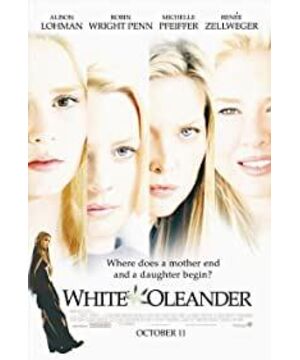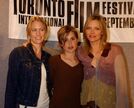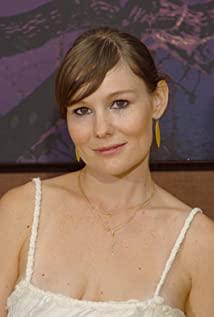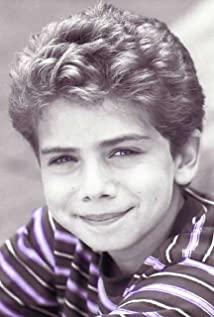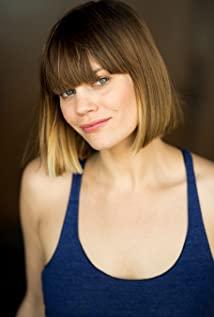Sometimes, the growth is very long, and sometimes, it is only a moment, what role a certain event played in the process of growth, it was not clear at the time, even at a loss, just like a film As the daughter Astrid said in "White Oleander" - "It is only at the end that I understand what the beginning means." Ultimately, when a person can completely separate from the influence of his parents and become independent When he thinks about problems and makes correct judgments, he has grown up, and the process of learning to think independently may be long, or it may just need to ignite the fuse.
Some people are born perfectionists and have a strong desire for control. They always hope that their children will develop according to their own will. Once they do not follow the "script", they will become extremely emotional. The artist's mother Ingrid in "White Oleander" is undoubtedly a perfectionist. She is beautiful in appearance, outstanding in temperament, independent, confident and strong in personality. With the vision of an artist and the paranoia of a former emotionally unfortunate person, she hopes to shape her daughter Become another her - independent thinking, strong and perfect. At the same time, she is an extreme purist and cannot accept that her daughter violates her wishes and standards. Even if she is within a high wall, she continues to exert influence on her daughter, but she does not know that her words and deeds have left her experienced daughter riddled with wounds. Kong...
2002's "White Oleander", a film about the relationship between mother and daughter and the growth of daughters, since I watched it, every time during the "rumination period", I would involuntarily pop up from my memory, fragments or whole paragraphs. It will come to my eyes, so I once again realized the painful journey of Astrid between the ages of 15 and 18 - her mother was imprisoned for murder, Astrid moved between foster families, the level of cultivation, values In a family with a very different way of doing things, they are looking for their own growth space, and the influence of the mother is still everywhere. Using correspondence and visiting time, I continue to instill my own ideas and influence in my daughter.
When she left her mother, her daughter encountered a cold and warm life. The first foster family allowed Astrid, who lacked fatherly love, to find a trace of "Hazy", a father and friend, but the religious and jealous "adopting mother" shattered her "Hazy" with a bullet, so The mother's wise words made the daughter give up God. She does not need the Bible, but only needs independent personality and thinking.
The rift between mother and daughter appeared in the understanding and warmth given to the lonely daughter by the boy in the foster school. The mother broke the short-lived sweetness of her daughter with her resolute words. The fierce collision, control and anti-control between mother and daughter appeared after the mother ruined her daughter's favorite Claire's survival fighting spirit with only a letter and a meeting. Since then, the daughter has gone through a period of trying to break free from her mother's influence. From her former admiration to multiple doubts to complete subversion, her daughter has not only changed her image, so the mother painfully sees her daughter in a rebellious dress, but her daughter The way of trading, let the mother tell the
story of her failed love in exchange for her lying in court... In this painful and beautiful film, the narrative seems indifferent, but it is full of power everywhere, which makes the audience feel quite personally, no matter whether they encounter it or not. There are certain things in common in living that life, such as the psychological transformation of adolescence. And director Peter Kosminskin's way of shooting the film also keeps the atmosphere of the film like a mournful poem, with "unusual sadness and beauty" (NW Cable News commented).
The actresses in this woman's film perform well, and the young Alison Lohman, who plays her daughter, has a good inner expression. In the film, she accurately captures Astrid's various encounters. The struggles and entanglements of the people are both fragile and strong. In the silence or counterattack, the inner strength is secretly surging, and finally the transformation and sublimation are completed.
This time seems to be the most integrated performance of Michelle Pfeiffer and the role, as UPN TV commented: "This is probably the rarest role in Michelle Pfeiffer's life, and the greatest The show." And when the original author wrote the character Ingrid, Pfeiffer was on his mind. Pfeiffer exudes a unique charm in the film, with long flowing golden hair, firm chin, insightful eyes, and wise and powerful words, all of which portray the character of this character, like a beautiful, arrogant and poisonous white oleander. Tao also interprets another translation of the film, "Poison Self-beauty". Ingrid finally let go of her daughter. She was escorted away in a white shirt. She was still blond, and she was still charming, so the audience and her daughter watched her get into the car and go away.
Renee Zellweger's Claire is a woman who has a career but is unsuccessful and is fragile. When visiting Ingrid in prison, the latter's few words point out her inner fragility, which is enthusiastic and optimistic. and sensitive. The film then gave Qiweig a medium and long-term view. Claire sat back in the waiting area silently, with obvious loss and helplessness on her face, which made the audience immediately understand that Ingrid had touched her pain point, and she could no longer pretend. A peaceful life, which sets the stage for Claire's suicide and Astrid's break with her mother. Zellweger is indeed the kind of actor who doesn't waste a single shot.
The film echoes the beginning and end, beginning and ending in Astrid's studio. The camera swept through the memorable boxes in her collection in turn, and the inscriptions on them witnessed the transformation of a young girl's pain - sad dew, sad honey, sorrowful water, painful tears, and river of heart.
At this time, Astrid regained her mother-like appearance and dress, with golden braids and white clothes. She no longer needed to use the contrast of heavy makeup and makeup to distinguish herself and establish her independence. She has also understood the way of mother's love, and she will often think of her mother and white oleander, but she has become detached, just like Boston Globe's evaluation - "After a broken heart, she will spread her wings."
(The film review blog http://nicolew.blog.hexun.com/41496280_d.html )
View more about White Oleander reviews


